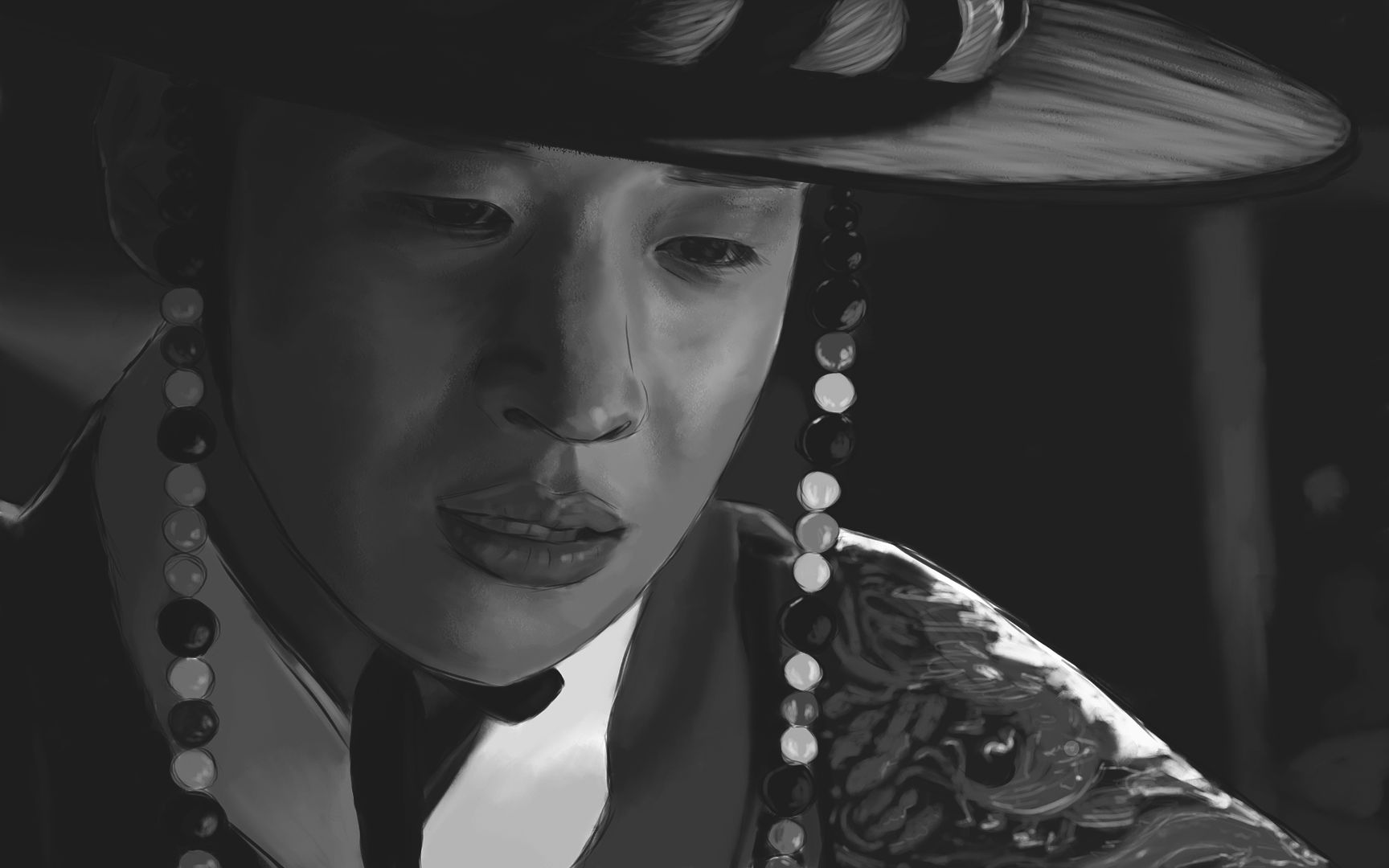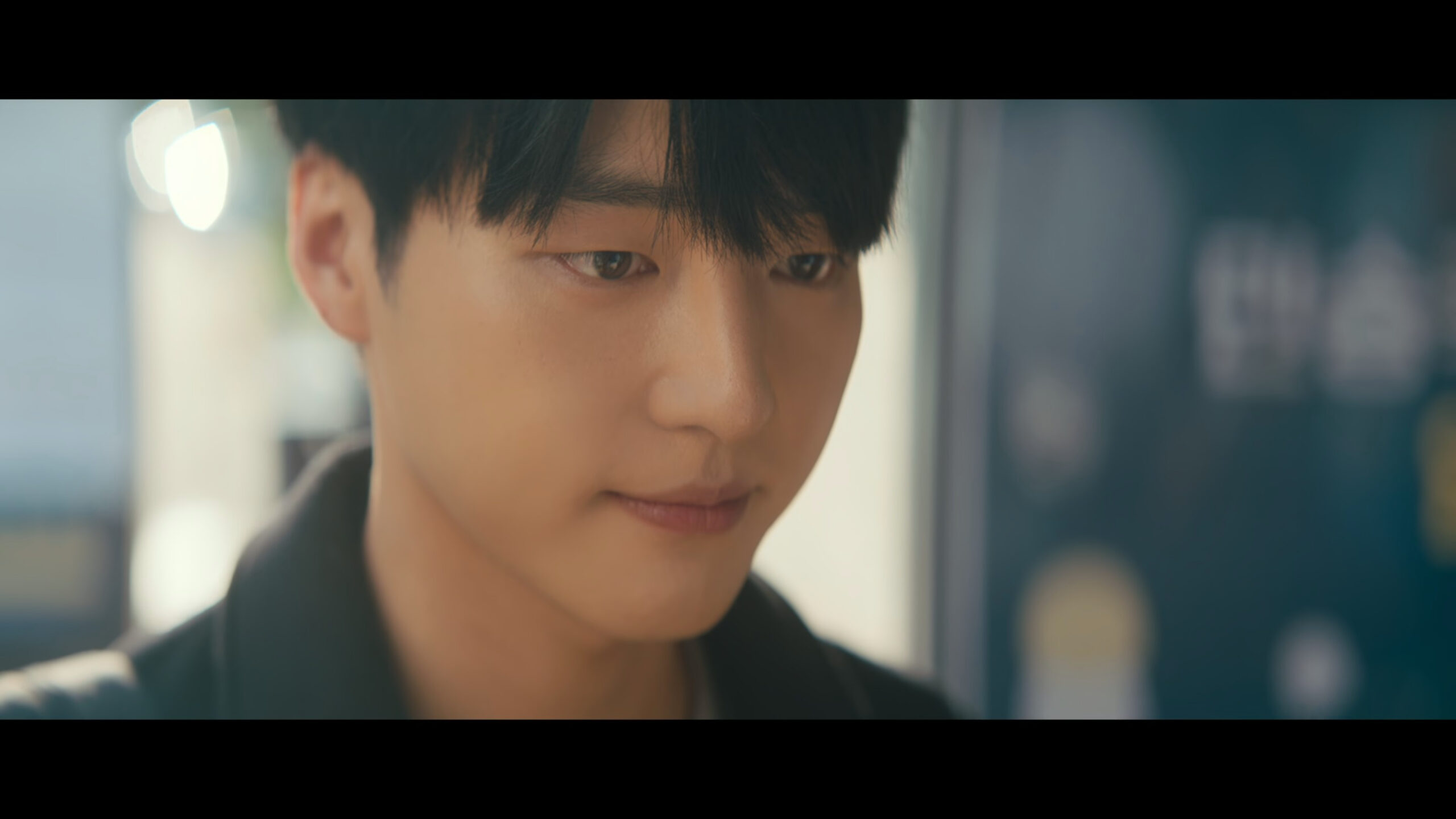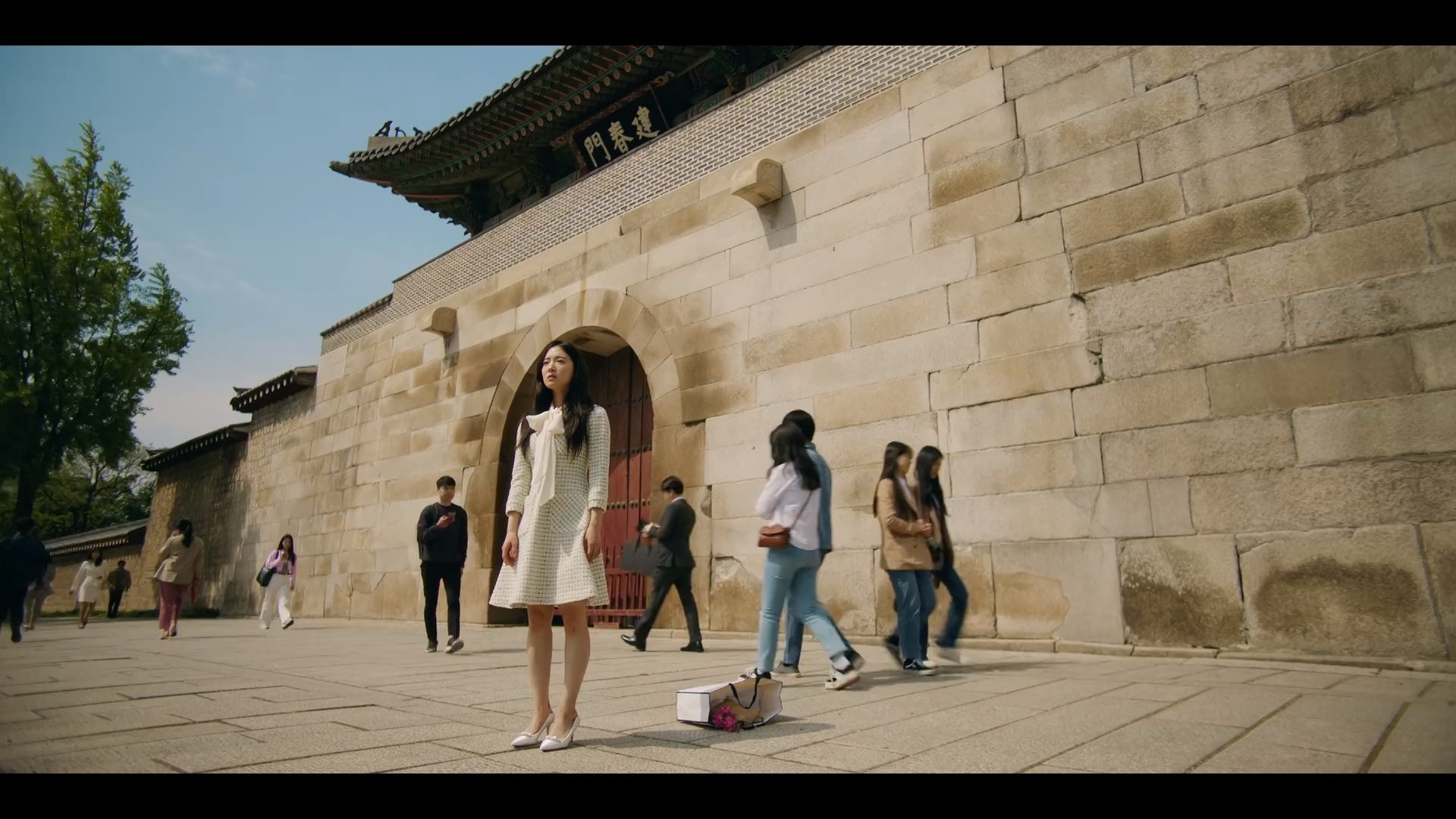Kolorful Palette: Grey mourning [Secret Door]
by Fanderay
Secret Door sure is intense, especially since it could be fairly accurately described as a show about a bunch of guys in big hats talking at each other. The first two episodes flew by, and even though I’m not very familiar with the history I not only managed to keep up with story, but found myself surprisingly captivated by it. I even managed to keep all the ministers straight, and that’s saying something (especially since it seems to be the same pool of actors that play the ministers in every sageuk!).
Although the central plot is incredibly interesting in its own right, one of my favorite things about watching this type of drama is the insight it gives me on the time period. Before I watched Tree With Deep Roots I had never stopped to think about how powerful literacy really is, and how crippling it would have been for the citizenry to have no written voice, and no option other than learning Chinese characters (which wasn’t actually an option since they had no one to teach them).
I definitely take my ability to educate myself for granted, and I’m reluctant to even have to pay to learn something (what with the internet and all) so I find it pretty hard to imagine what it would be like to essentially be barred from learning, and to be punished if I tried. After I watched Tree With Deep Roots I did a little research and was surprised to learn that some of the future kings so vehemently opposed the use of Hangul.
Once I thought about it, it made a lot of sense, but I now find the whole issue very similar to the censorship of books in Secret Door. The higher-ups may make elegant speeches about why such things need to be controlled (for the so-called benefit of the country) but it really comes down to power and fear. They’re not wrong to fear uprising, but I personally think a government should have to worry about revolt since it keeps them accountable. On the flip-side though, if you keep you keep your citizenry ignorant, you do have a lot of spare time to fake-abdicate, and that seems like a pretty good use of time.
Anyways, that’s enough about the empowerment of literacy for now (possibly a boring topic!). I don’t watch a lot of Korean movies and I didn’t watch the blight on Dramaland that is Fashion King so I’m not very familiar with Lee Je-hoon, but so far I love him. I don’t know exactly where his role as Sun is going, but no matter how you spin it, it’s going to be a nuanced and multi-faceted character. So far he’s nailing it. He has a lot of that happy-go-lucky charm that we see in so many cliched prince-types, but he also has a subtle edge that makes him seem just slightly unhinged (or at least ready to break that first hinge). His life is a difficult one, and I don’t think there are many that could survive it without some emotional scarring. It’s impossible to please everyone, and that’s a pretty scary prospect when “everyone” includes multiple powerful political factions and the king himself.
The scene I drew is from when Sun is talking to his recently assassinated friend, and telling him that it’s all his fault, but that he can’t cry for him yet. Of course he is saying all this through stifled tears, and it’s heartbreaking. Sun is trying so hard to be strong and steadfast, but ultimately he’s in over his head, and I can’t help but feel the futility of everything he’s striving for. This scene may have been one of the first, but I think we are going to see many scenes of of Sun trying his best to stay strong. I think we will see him search for his inner strength and then fail. Then, when he finds that strength, he will fail anyways (much as he did with his attempt to legalize book publishing). Hopefully he sees some victories and moments of genuine happiness along the way, but we all know that ultimately, he will lose his fight.
That being said, this drama still holds a lot of suspense and mystery, which is an impressive feat. Historically, Yeongjo doesn’t seem that bad (based on my 5 minutes of Googling) and even within the realm of this drama he does seem to have some good in him, so I could certainly see the ending playing out in a variety of ways. Yes, Sun could end up a victim that has been set up, but maybe he’ll just have a mental break and become so much of a danger that Yeongjo feels he has no choice but to get rid of him (which would be extra tragic if Yeongjo blames himself for making Sun that way). There are other options too of course, but I hope the details stay something of a mystery until the very end, and that the characters are painted in a multitude of greys to keep me guessing.
RELATED POSTS
- Secret Door: Episode 1
- Secret Door’s enthusiastic press conference
- Secret Door doles out love, punishment, and tragedy
- Hidden tears in Secret Door’s character posters
- Secret Door preview hints at chilling father-son conflict
- Secret Door reveals its king and romantic killer
- Secret Door’s prince in action
- Kim Yoo-jung on the set of Secret Door
- Lee Je-hoon confirms drama return with Secret Door
Tags: Kolorful Palette, Secret Door

 Interview with Kim Yoo-jung
Interview with Kim Yoo-jung Hello Dramabeans series
Hello Dramabeans series



![[2022 Year in Review] The Bean Count](https://www.dramabeans.com/wp-content/uploads/2022/11/beancount_2022.png)

Required fields are marked *
Your email address will not be published. Required fields are marked *
1 Kat
September 28, 2014 at 4:30 AM
Beautiful work as always!
Required fields are marked *
2 kanz
September 28, 2014 at 7:40 AM
"Sun is trying so hard to be strong and steadfast, but ultimately he’s in over his head, and I can’t help but feel the futility of everything he’s striving for."
Hear hear... I feel sorry for Sun because he has to act according to the rules and his father's expectations. And if he fails he will be punished. Parents who make their children fear will create trauma to the children. I myself grow up having to fulfill my parent's expectations and more often than not, my mother and I are always at the opposition ends, just like Yeongjo and Sado here. Although fortunately I could fulfill some of them, not always fail, but there's high standards I have to achieve.
Required fields are marked *
3 Mrs. Jang guem suk
September 28, 2014 at 3:29 PM
*Facepalm* still thinking that server door is Healer smh I need help
Required fields are marked *
4 Gidget
September 28, 2014 at 4:40 PM
"Anyways, that’s enough about the empowerment of literacy for now (possibly a boring topic!)."
As usual, in addition to giving us beautiful art, you give us compelling thoughts.
Your discussion about literacy helped gel some things I've been musing about. When I think about the Joseon period of Korean history, I keep coming back to the quote "History belongs to the victors, legends to the people, fantasy to literature."
As I’ve explored the information that’s available of the fate of Sado, I’ve had increasing difficulty with what’s conventionally accepted as ‘truth’. The information history has retained about his life is rife with contraindications. And combined with an unusual singularity of historical source-texts, it would appear that the victors may indeed have used both re-written history and commissioned literature to create legend.
It strikes me that our present understanding of the story of Sado's life and demise hinges on the power the ruling class had to control the written word. I'm thankful for the vision of artists and producers (and bloggers), so the story can be told in a way that tests and explores the veracity of the narrative that this dynasty left behind.
Required fields are marked *
Gidget
September 28, 2014 at 4:42 PM
As I've looked at the Joseon period of history, one thing that strikes me is that the narrative we commonly see in dramas doesn’t get at the heart of the Joseon power battles. Most often we’re shown a battle between kings and political factions with a powerful minister thrown into the mix. As I look at history, though, my perception is that the intrigues of the political factions might be nothing more than window dressing for the power struggles between clans and kings. My impression is that Korea’s dynastic history is largely indistinguishable from the rise, fall and struggles between it’s dominant family clans. Their relentless pursuit of money, power, and - ideally - the throne, spans centuries. While each kingdom had it's unique battles, three consistent power players seem to have been the House of Yi, the Andong Kim clan and the Gwangsan Kim clan.
It also seems that throughout history, when the throne wasn’t in their hands, the clans sought to consistently exert influence and eventually seize power by providing the kingdom it's queens. Sadly, during the late Joseon period, these queens appeared to be black widows to their husbands, sons and grandsons. The kings and princes who choose to be out-of-line with the clan’s interests died by a variety of circumstances. But an underlying thread that connected their deaths was preservation or transfer of clan power - through the influence of the Andong and Gwangsan queens. As the dynasty progressed, royal successor sons were increasingly marginalized, driven away, or killed off before they were old enough to rule. Dowager Queens were used for information and influence. And Dowager Queen Regency (in combination with the death of successor princes) was used to either seize or cement clan control.
It’s all fascinating.
Required fields are marked *
skypilot
September 30, 2014 at 6:44 PM
Nicely stated, and more food for thought, in combination with Fanderay's very interesting (and not boring at all!!) post!
Required fields are marked *
5 kayelove
September 29, 2014 at 1:26 AM
Oh gosh, I was really looking forward to this one! Thanks db! :)
Required fields are marked *
6 owl
September 29, 2014 at 7:56 AM
Such beautiful detail, Fanderay. Gorgeous.
Required fields are marked *
7 Sua
September 30, 2014 at 1:36 PM
Dude. I have a question.
HOW THE HECK ARE YOU SO AWESOME?!?!! >u<
Required fields are marked *